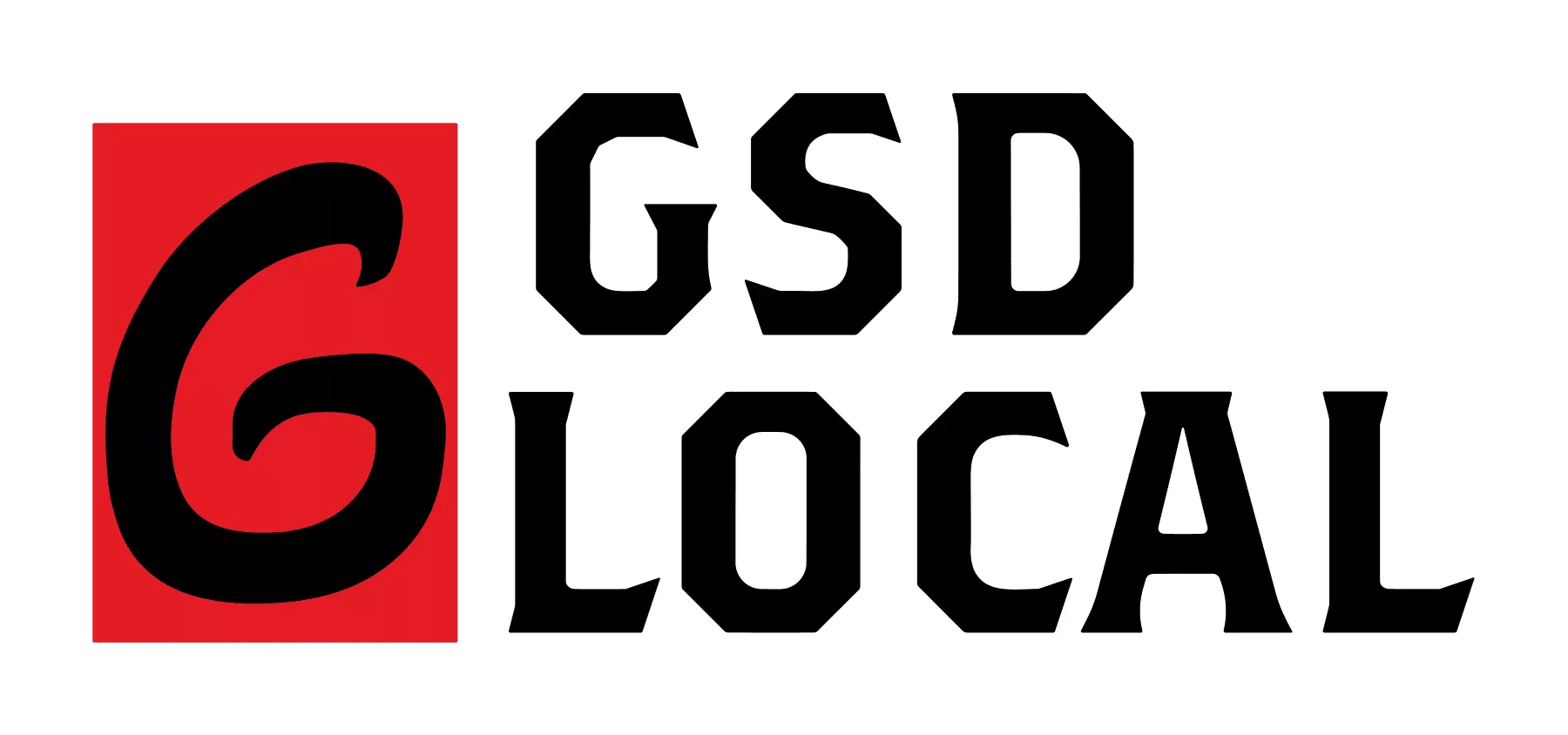Outrank Local Competitors in 2025...
Local Business Schema Types: Complete Guide for 2025
Unlock Higher Rankings, More Clicks, and Local Trust—Fast

Last Updated: July 2025 | Reading Time: 12 minutes
The digital landscape has fundamentally shifted how customers discover and evaluate local businesses. While traditional SEO tactics still matter, there's a technical layer that many business owners overlook-one that can dramatically impact your local search visibility and customer acquisition.
That layer is schema markup, and it's becoming increasingly critical for local businesses that want to stand out in crowded search results. If you've ever wondered why some businesses appear with rich, detailed information in Google search results while others show basic blue links, schema markup is often the differentiator.
What is Local Schema Markup?
Schema markup is a form of structured data that helps search engines understand the content and context of your website. Think of it as a translation layer between your website content and search engines-it takes the information that's obvious to human visitors and makes it crystal clear to Google's algorithms.
For local businesses, schema markup serves as a direct communication channel with search engines, explicitly stating: "This is our business name, this is our address, these are our services, and this is how customers can contact us." Rather than forcing Google to interpret this information from your website's text and HTML, schema provides it in a standardized, machine-readable format.
The impact goes far beyond simple communication. When implemented correctly, local business schema types can trigger rich snippets, enhance your Google My Business presence, improve voice search visibility, and even influence local pack rankings. It's the technical foundation that supports all other local SEO efforts.

Essential Schema Types for Local Businesses
Understanding which schema types to implement depends on your business model, but certain schemas form the foundation of any comprehensive local SEO strategy. Here are the critical schema types every local business should consider:
Organization Schema
Organization schema serves as the cornerstone of your structured data implementation. This schema type establishes your business's fundamental identity in the eyes of search engines, including your official name, contact information, social media profiles, and foundational business details.
The Organization schema becomes particularly powerful when you consistently implement it across all digital touchpoints. It helps search engines connect your website, social profiles, directory listings, and other online mentions as belonging to the same entity-a crucial factor in building local search authority.
LocalBusiness Schema
While Organization schema establishes your business identity, LocalBusiness schema specifically optimizes for local search scenarios. This schema type includes location-specific information like your physical address, service areas, operating hours, and local contact details.
LocalBusiness schema directly feeds into Google's local search algorithms and can influence your appearance in "near me" searches, local pack results, and location-based voice queries. For businesses with multiple locations, implementing LocalBusiness schema correctly becomes even more critical for maintaining consistency across different geographic markets.
Service Schema
Service schema allows you to explicitly define what your business offers, moving beyond generic business categories to specific service descriptions. This schema type is particularly valuable for professional service providers, contractors, and specialized businesses where service offerings might not be immediately obvious from a business name or category.
When properly implemented, Service schema can trigger rich snippets that display your services directly in search results, potentially increasing click-through rates and qualifying leads before they reach your website. It also supports voice search optimization by providing clear, structured information about what you offer.
Product Schema
For local businesses that sell physical products-whether retail stores, manufacturers, or service businesses with product components-Product schema provides detailed product information directly to search engines. This includes pricing, availability, reviews, and specifications.
Product schema becomes especially powerful when combined with local inventory data, helping nearby customers find specific products in stock at your location. This schema type can trigger product rich snippets, shopping results, and even influence local inventory ads.
Review Schema
Review schema aggregates and displays customer feedback directly in search results, providing social proof at the moment potential customers are evaluating your business. While you can't directly control review schema (it pulls from various review platforms), understanding how it works helps you develop review generation strategies that maximize its impact.
Review schema can significantly influence click-through rates and local search rankings, as Google considers review signals important ranking factors for local businesses. The key is generating consistent, authentic reviews across platforms that feed into schema markup.
Industry-Specific Schema Applications
Different industries can leverage schema markup in unique ways that align with their specific customer needs and search behaviors. Understanding these industry-specific applications helps you prioritize schema implementation based on your business model.
Restaurant and Food Service
Restaurants benefit from specialized schema types like Restaurant schema, which includes menu information, cuisine types, price ranges, and reservation systems. Menu schema can display specific dishes and prices directly in search results, while LocalBusiness schema optimized for restaurants can highlight key features like outdoor seating, delivery options, or dietary accommodations.
The combination of these schema types can trigger rich snippets that show restaurant hours, phone numbers, reservation links, and even popular menu items-essentially creating a mini-website within search results.
Medical and Healthcare Practices
Healthcare providers have access to specialized schema types like MedicalOrganization and Physician schema, which can include specialties, accepted insurance, credential information, and appointment booking systems. These schemas must be implemented carefully to comply with healthcare advertising regulations while maximizing local search visibility.
Medical schema markup can trigger rich snippets that display provider credentials, specialties, and contact information, helping patients quickly identify qualified providers in their area.
Retail and E-commerce
Local retail businesses can leverage Product schema alongside LocalBusiness schema to create a powerful combination that supports both online and offline customer journeys. Store schema can indicate local inventory, while Product schema provides detailed item information that can trigger shopping results and product rich snippets.
This approach is particularly effective for businesses that offer both online purchasing and local pickup options, as schema markup can clearly communicate availability and fulfillment options to potential customers.
Professional Services
Law firms, accounting practices, consulting businesses, and other professional service providers can use specialized schema types that highlight expertise areas, credentials, and service methodologies. ProfessionalService schema combined with Person schema for individual practitioners creates comprehensive structured data that supports both firm-level and individual professional visibility.
This schema combination can trigger rich snippets that display professional credentials, practice areas, and contact information, helping potential clients quickly assess qualifications and expertise.

Schema Markup Benefits for Local Visibility
The benefits of proper schema implementation extend far beyond simple search engine communication. When executed strategically, schema markup creates a compound effect that amplifies all other local SEO efforts.
Rich Snippet Enhancement
Rich snippets transform your search result listings from basic blue links into informative, visually appealing entries that include additional details like ratings, hours, contact information, and service offerings. These enhanced listings typically achieve higher click-through rates and provide better user experiences.
The key to rich snippet success lies in comprehensive, accurate schema implementation that provides search engines with complete information about your business. Partial or incorrect schema markup often fails to trigger rich snippets or, worse, can negatively impact search visibility.
Knowledge Panel Optimization
Google's knowledge panels provide detailed business information directly within search results, often appearing for branded searches of your business name. Proper schema markup significantly increases the likelihood of triggering knowledge panels and ensures that displayed information accurately represents your business.
Knowledge panels create powerful brand impressions and can include photos, reviews, hours, contact information, and direct action buttons like "Call" or "Get Directions." For local businesses, knowledge panel optimization through schema markup represents a significant competitive advantage.
Voice Search Compatibility
Voice search queries often seek specific, factual information that schema markup can provide directly to search engines. When someone asks their device "What time does [your business] close?" or "What services does [your business] offer?", properly implemented schema markup increases the likelihood that your information will be selected for voice search responses.
Voice search optimization through schema markup becomes increasingly important as voice-enabled devices continue to proliferate and voice search behavior evolves beyond simple informational queries to include local business research and transaction initiation.
Local Pack Influence
While Google doesn't explicitly state that schema markup directly influences local pack rankings, the data consistency and comprehensive business information that schema provides aligns with known local ranking factors. Businesses with comprehensive, accurate schema markup often see improvements in local pack visibility over time.
The relationship between schema markup and local pack performance likely stems from schema's role in establishing business entity clarity and information consistency-both critical factors in local search algorithms.
Getting Started: Schema Implementation Roadmap
Implementing schema markup effectively requires a strategic approach that prioritizes high-impact schemas while maintaining technical accuracy. Here's a practical roadmap for local businesses beginning their structured data implementation journey.
Phase 1: Foundation Schema Implementation
Begin with Organization and LocalBusiness schema types, as these establish your fundamental business identity and location information. Focus on accuracy and completeness rather than speed-incorrect schema markup can be worse than no schema markup.
Ensure that all information in your schema markup exactly matches information on your website, Google My Business profile, and other online listings. Consistency across all platforms is crucial for schema markup effectiveness.
Phase 2: Service and Content Schema
Once foundation schemas are implemented and validated, expand to Service schema for your primary offerings and content-specific schemas for key website pages. This phase should align with your most important business objectives and customer search behaviors.
Consider implementing FAQ schema for common customer questions, Article schema for blog content, and Event schema for any workshops, sales, or community events your business hosts.
Phase 3: Advanced Schema Integration
Advanced implementation includes specialized schema types relevant to your industry, integration with third-party review platforms, and dynamic schema generation for frequently updated content like inventory, pricing, or availability.
This phase often requires technical expertise or professional implementation, as it involves more complex schema relationships and ongoing maintenance considerations.
Phase 4: Monitoring and Optimization
Schema markup implementation isn't a one-time project-it requires ongoing monitoring, validation, and optimization based on search engine algorithm updates and business changes. Establish processes for regular schema audits and updates as your business evolves.
Use Google's Rich Results Test tool, Search Console's Enhancement reports, and third-party schema validation tools to monitor implementation effectiveness and identify optimization opportunities.
Professional Implementation Considerations
While basic schema markup can be implemented by business owners with technical aptitude, comprehensive schema strategies often benefit from professional expertise. Understanding when to seek professional help can save time, prevent costly mistakes, and maximize schema markup effectiveness.
Complex multi-location businesses, companies with extensive product catalogs, and organizations with frequent content updates typically require sophisticated schema implementation that goes beyond basic templates. Professional implementation ensures scalability, accuracy, and alignment with evolving search engine requirements.
Additionally, professional schema audits can identify optimization opportunities that might not be obvious to business owners, including competitive analysis, industry-specific schema applications, and advanced structured data strategies that support broader digital marketing objectives.

Take the Next Step: Professional Schema Implementation
Schema markup represents a significant opportunity for local businesses to improve search visibility, enhance customer experiences, and gain competitive advantages in local search results. However, the technical complexity and ongoing maintenance requirements make professional implementation a wise investment for most businesses.
Understanding schema markup fundamentals empowers you to make informed decisions about implementation approaches and helps you evaluate potential technical partners. The businesses that implement comprehensive, accurate schema markup now will have significant advantages as search engines continue to evolve toward more sophisticated, structured data-driven results.
Ready to transform your local search visibility with professional schema markup? Download our comprehensive Local Schema Implementation Checklist to see exactly which schema types your business needs and get started with a structured approach to implementation.
[Download Free Local Schema Implementation Checklist]
Need expert guidance on schema markup strategy for your specific business? Our team specializes in comprehensive structured data implementation for local businesses across all industries. Contact us for a personalized consultation on maximizing your schema markup ROI.
Frequently Asked Questions
What is LegalService schema, and why is it important for my law firm’s SEO?
@LegalService is a structured data type that tells Google your business is a law firm and specifies what legal areas you practice in. It helps improve your visibility in local search results and ensures your firm appears in relevant queries with rich, trusted information.
Which schema types should a law firm use in 2025?
At a minimum, your firm should implement @LocalBusiness, @LegalService, @PostalAddress, @OpeningHours, and @Review. Adding PracticeArea, Attorney, and BarAssociation properties gives Google even more clarity on your legal services.
How does schema markup help my law firm outrank local competitors?
Schema enhances how your website appears in Google—adding details like star ratings, office hours, and service areas directly to your search listing. This builds trust, improves click-through rates, and increases your chances of appearing in the local 3-pack.
Is schema implementation something my legal assistant or IT person can handle?
While some platforms offer basic schema tools, accurate implementation for law firms often requires technical expertise. GSD Local offers done-for-you schema strategies designed specifically for law practices to avoid errors and maximize local visibility.
Can schema markup help generate more leads or calls for my firm?
Yes. When implemented correctly, schema can boost your search presence, attract higher-intent clients, and increase phone calls by making your listing more informative and prominent in Google’s local results.

